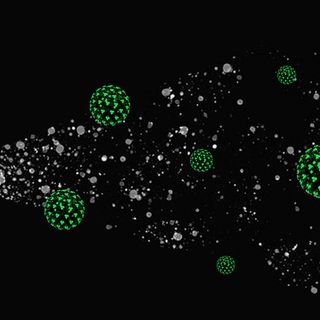Continuous white noise at night could disrupt sleep, rather than aid it, according to the findings of a new review of research.
White noise comprises all audible frequencies across the audible frequency range — much like white light, which is a mixture of all visible wavelengths. Therefore, white noise can drown out other sounds. It is used as a sleeping aid because it can mask annoying, bothersome sounds that prevent people from falling asleep. Some people also believe that getting onto the habit of listening to the white noise every night, may trigger a kind of Pavlovian response, helping them fall asleep.
Published in the journal Sleep Medicine Reviews, the research involved a systematic review and meta-analysis of 38 studies examining the relationships between continuous white noise and sleep. The researchers found little rigorous evidence that continuous white noise helps people fall asleep faster. However, instead, they found evidence that white noise might be causing more disrupted sleep. Drawing hard and fast conclusions was difficult, given most of the studies used small sample sizes, recorded inconsistencies in sleep outcomes, and had other components of noise present in the surroundings of the participants.
Related on The Swaddle:
Do Audio Drugs Really Get You High?
Still, researchers expressed concern that continuous white noise might prevent the auditory system from switching off at night. “Whenever we’re exposed to sounds and noise, the inner ear is translating that into nerve signals that are then interpreted by the brain. It is an active process, which generates metabolites, some of which have been shown to be harmful to the inner ear. You probably want to have a period where the auditory system can wind down, regenerate and prepare for the next wake period,” explained Mathias Basner, a professor of psychiatry at the University of Pennsylvania School of Medicine in Philadelphia, U.S., who co-authored the study.
Other experts agree with Basner’s conclusions. While white noise is useful when used to “mask highly intermittent background noise,” it is not beneficial for “sleeping in a relatively quiet environment” — in fact, “any acoustic stimulus being continuous or not has the potential to interrupt the sleep process,” Professor Christian Cajochen, who heads the Centre for Chronobiology at the University of Basel in Switzerland and wasn’t involved in the study, told The Guardian.
“The main concern to overcome in poor sleep is the busy or racing mind. People can’t switch off mentally. White noise is just like any other monotonous stimulation, which has been tried many times in many ways over decades, and the evidence [for it working] is poor,” said Professor Colin Espie, who specializes in sleep medicine at the University of Oxford and wasn’t involved in the study.
“If these [white noise] apps or devices could only do good things, I wouldn’t really care. But because there may be negative consequences, I would just be careful,” Basner noted, adding: “Additional research with objective sleep measures and detailed descriptions of noise exposure is needed before promoting continuous noise as a sleep aid, especially since it may also negatively affect sleep and hearing.”




